Berezina-1812: the last “victory” of the French in Russia
"Civilizers." On the way to Paris
It is believed that the French emperor managed to bring to Berezina about 45 of thousands of fully operational warriors, who were joined by no less than 30 of thousands of "fellow travelers", including conscripts, martyrs, as well as soldiers from regiments and divisions that were already completely destroyed. Among them were several thousand wounded and even Russian prisoners. With such a burden, the very fact of the French crossing the Berezina can be considered an achievement.
Do not wait for the story of the “tragedy of the Great Army”. Repeating everything that has already been described many times, there is no point. However, one cannot help but recall that, having crossed the Berezina, Napoleon will immediately go to France. Many in his entourage, and even in the army, suspected this. This is evidenced not only by memoirs of contemporaries, but also by the few surviving documents.
Nevertheless, even at the last crossing, it would never have occurred to anyone that tens of thousands of completely helpless people would almost be left to their own devices. Everyone stubbornly continued to believe in the “Bonaparte star”, as can be seen, because after several weeks of terrible torment and loss, there was no longer anything to believe in.
Maneuvering on the banks of the Berezina, Napoleon was not at all obliged to justify these expectations. A tough pragmatist did everything to ensure that the maximum possible number of battle-hardened soldiers and officers came out of Russia. The emperor himself had no doubt that he would answer the Russians for the failed 1812 campaign of the year.
As Vladlen Sirotkin convincingly proved in his research, the war with Russia was generally conceived by Napoleon as a struggle of European civilization with semi-Asian barbarism. However, the Great Army, which repeatedly won in the fields of Europe, actually did not exist. Even as a backbone for the new army, a bunch of "civilizers", which, according to so many researchers, could really play the role of liberators in Russia, was hardly suitable.
Here is how General Roger, one of the division commanders of the Young Guard, who was not the most famous of the memoirists of the era, described their "tragic" retreat:
The treasury contained silver in coins and silver objects melted into bullion, found in large numbers in burnt Moscow. Accompanying the treasury and trophies, I moved along the carts of our army stretched on 15 leagues (66 km), loaded with useless luggage. The French, men and women who lived in Moscow before the war, were a heavy burden for our troops: few survived the retreat from Moscow. ”
This is called "comments are superfluous."
Russian "troika"
The main forces of the Russian army after a fierce battle near Krasny, where the guard snapped for the last time, noticeably lagged behind Napoleon. At some point, when the French were already engaged in the construction of bridges, Kutuzov was in four passages from the Berezina. The Russian commander in chief could not know that Napoleon long before the last crossing ordered to get rid of almost the entire pontoon park.
The calculation was made that this time “General Moroz” would be on the side of the French - the rivers would stand up and leave Kutuzov would not be difficult. Moreover, Napoleon at first seriously hoped to recoup on the armies of Wittgenstein and Chichagov, who managed to mop the flank corps of the Great Army, battling his three marshals and allied commanders.
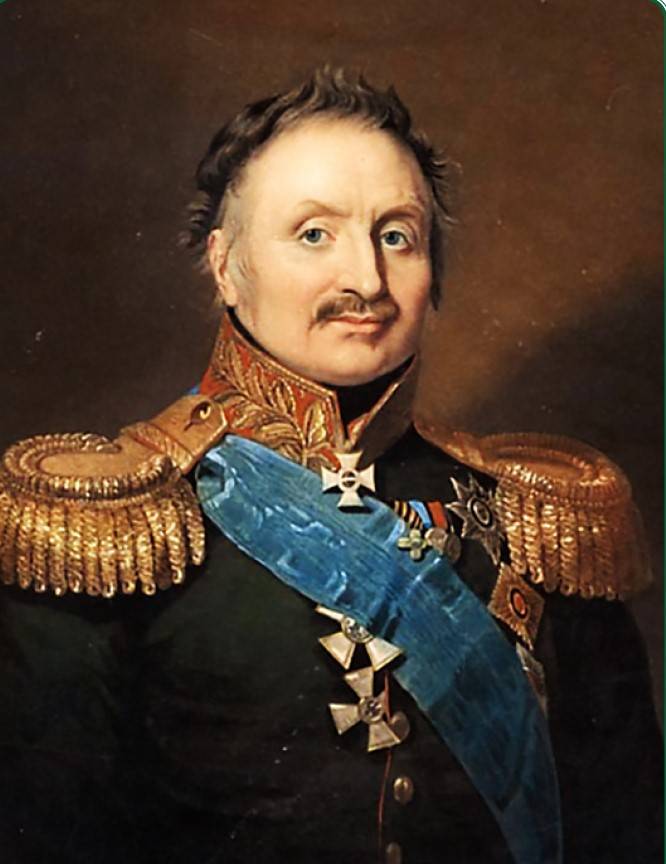
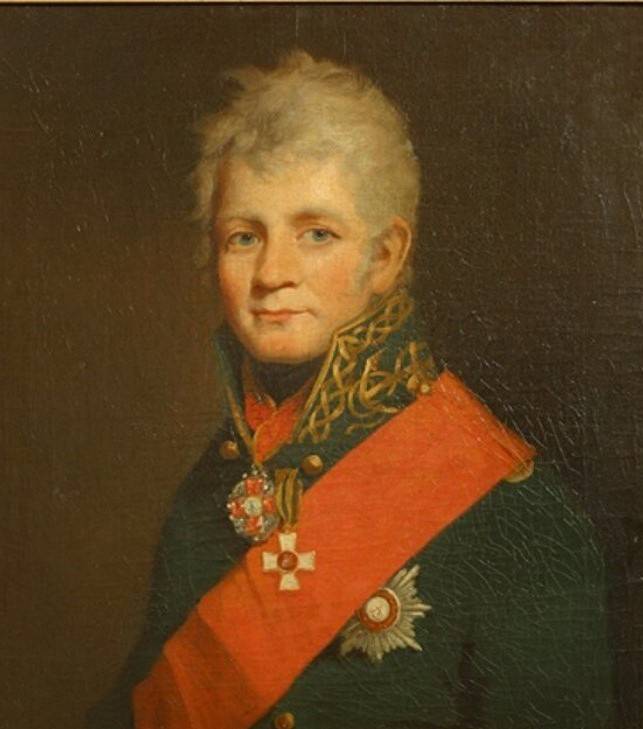
The Prussians at that time generally only pretended to continue to fight on the side of the French emperor. The Austrian Commander-in-Chief Schwarzenberg, who will very soon receive the rank of Generalissimo, actually missed the Moldavian army into the rear of Napoleon's main forces. As an excuse, he cited some inconceivable data on the forces and capabilities of the 3 Russian army opposing him. In fact, this army, as a separate unit, no longer existed at all.
It might seem that in the most favorable situation for encircling the Napoleonic army, Kutuzov deliberately slowed down so that his great adversary would not be in a hurry to force the last large river in Russia. With more competent actions of the Russian armies, which acted on the flanks, the traffic jam at the exit from the Berezina crossings, wherever they were directed by the French, could be shut up quite reliably.
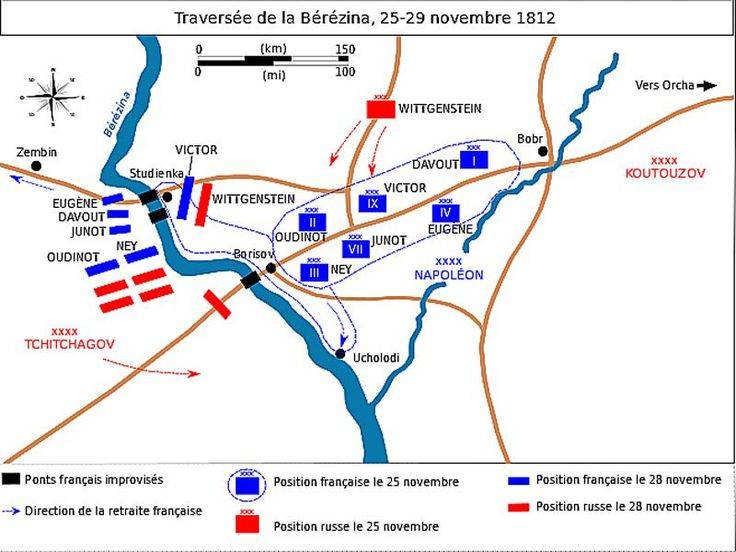
The main reason that Napoleon eventually slipped away, although throwing most of the convoy and conscripts, was not even the contradictions between the three Russian commanders, but the fact that, in fact, they generally acted without paying attention to each other. Kutuzov tried to save everything that remained of his main forces, and openly exposed Napoleon to much fresher troops that were coming from the north and south.
He knew perfectly well that Napoleon, even having joined the corps of Oudinot, Victor and MacDonald, or General Rainier, could no longer defeat at least one of the Russian formations. The field marshal was sure that if Napoleon again thirsted for it again, he would always have time to bring his main forces.
At the same time, we must not forget that the Russian commanders on the flanks were Admiral P.V. Chichagov, and the newly-minted cavalry general P.Kh. Wittgenstein, not taking into account all the messages of the partisans and Cossacks, as well as urgent dispatches of Kutuzov, considered the remnants of the Great Army as before a powerful force. And so powerful that the prospect of converging with her in battle separately, both equated suicide.
In the end, it all ended up in the fact that in the battle of Stuyanka they fought against the French side by side, but by then Napoleon had already managed to go far, and with a considerable force to leave. The Guard, as well as everything that remained of its best corps, also managed to get out of the almost inevitable environment.
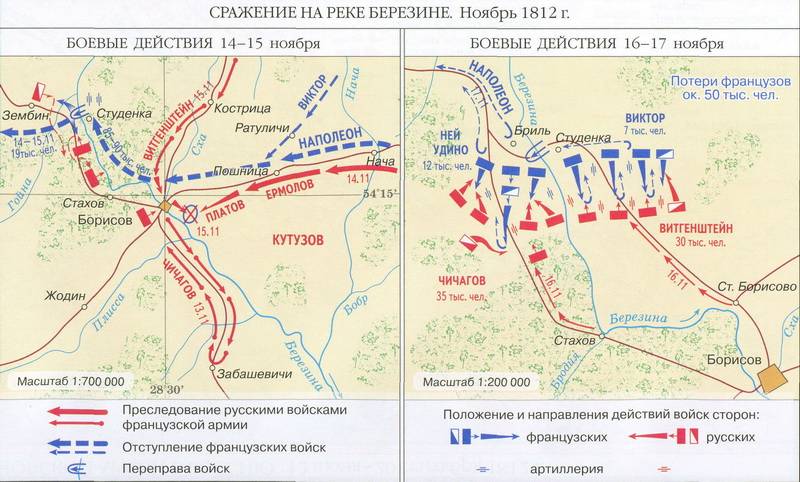
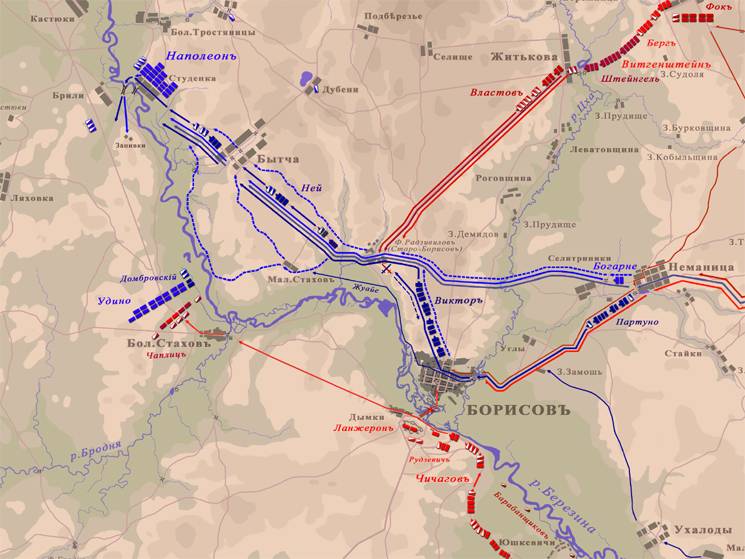
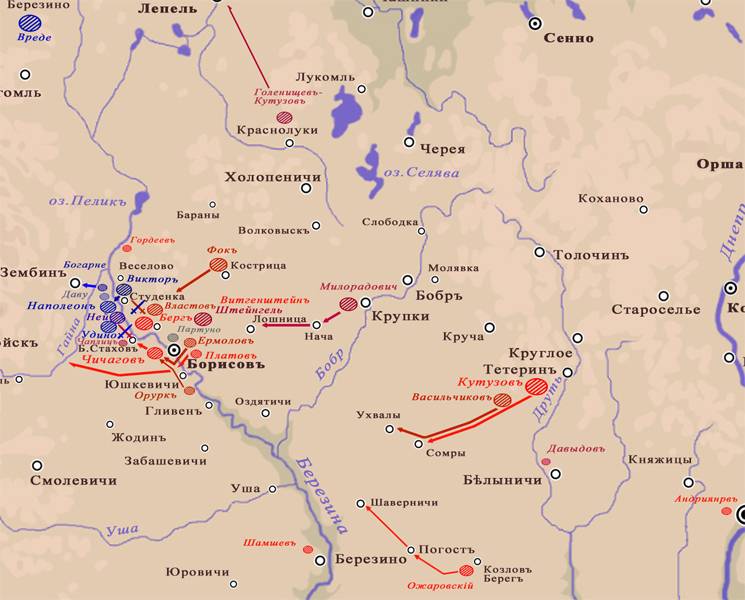
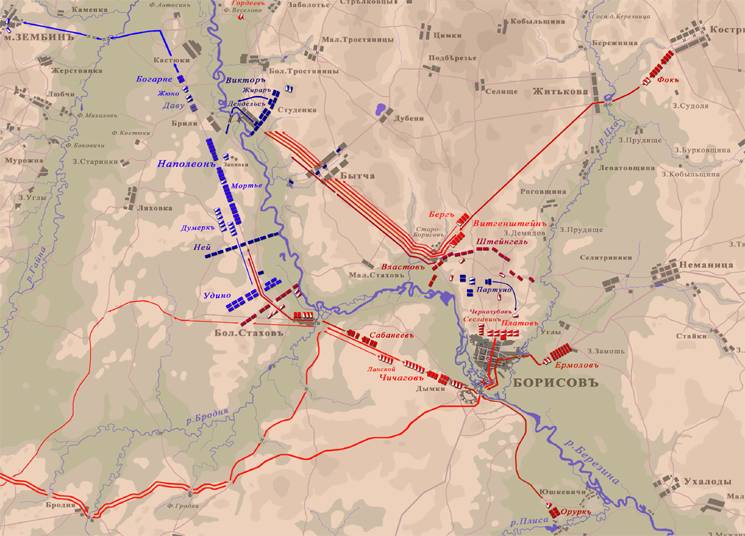
And even with such detailed maps in hand, it’s hard to understand how Napoleon succeeded in an amazing feint that made Admiral Chichagov, with his almost 40-thousandth army, make a useless march south, in the direction of Borisov. This is a separate topic for many more studies.
For two hundred years, historians have not agreed on a single version. The events of several days on the Berezina in detail and fairly objectively, which is recognized by both experts and readers, are considered in one of the publications on Military Review: “The Battle of Berezin on 14-17 (26-29) on November 1812”.
It remains to make a few thoughts about the causes of another crushing defeat of Napoleon, declared another victory, as well as those who played both positive and negative roles in this battle at once.
The reasons certainly lie on the surface: the Napoleonic army to Berezina has already ceased to be that indestructible force with which Kutuzov preferred to enter into direct confrontation as rarely as possible. With personalities, everything is also not so complicated - Kutuzov did not even try to hide the fact that he does not crave Napoleon’s blood, and most importantly, he really appreciates Russian blood.
Well, the young Alexander Eagles, the 43-year-old Wittgenstein and the 45-year-old Chichagov, simply turned out to be no match for their almost peer Napoleon - a truly brilliant commander who even managed to outplay them with an exhausted army.
And if Napoleon got caught?
You can repeat as much as you like story He does not know the subjunctive mood, but this does not interfere with considering possible scenarios of the development of events under somewhat different circumstances. So, the Russians had, and quite real, opportunities to encircle the French main forces on the eastern coast of the Berezina and even to capture Bonaparte himself.
And it might seem that neither foreign campaigns nor the capture of Paris would have been needed. However, the events most likely would have taken by no means the most favorable turn for Russia. But let us begin with the fact that Napoleon did not just stockpile poison after the battle of Maloyaroslavets. On Berezin, he would be able to use it, leaving the remnants of the army and all his associates to the mercy of the winners.
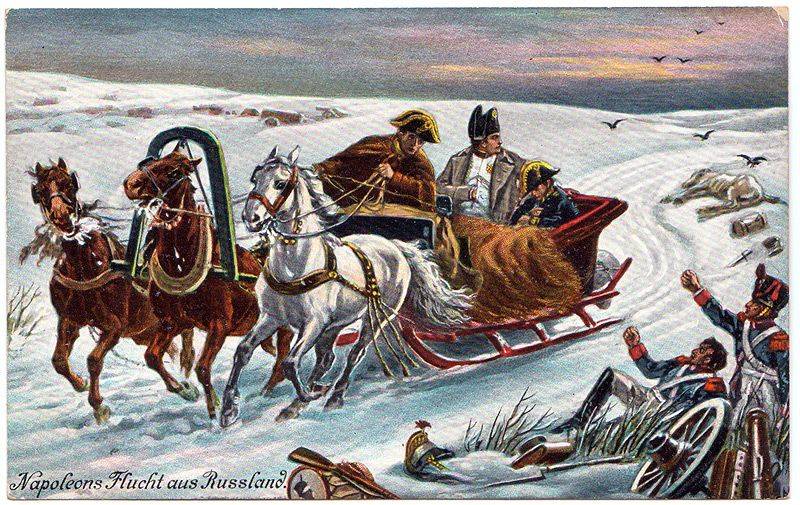
And it seems that even a peace with France, capable of overshadowing Tilsit's shame, could have been concluded almost immediately. But with whom? The then France would not dare to think of any Bourbons. With the baby by the Roman king Napoleon II in the arms of Mary-Louise or with the traitor Talleyrand. Or maybe with Murat or with Viceroy Eugene Bogarne in the role of regent, whom Napoleon’s elite could actually take.
Paris after such a Berezina would hardly have been as quiet and serene as on the day of the conspiracy of General Malet. And in general, without Napoleon, a republican coup in France would certainly have been much more likely than the return of the royalists. Allies on their bayonets could have returned the pot-bellied Louis XVIII to the Tuileries Palace, and it was no coincidence that in 100 days he was so easily thrown out of there.
But France, with all its then hegemony on the old continent, was not alone in confronting Russia. Prussia and Austria, the two strongest European powers, remained Napoleon's allies. About the members of the Rhine Union, as well as about Saxony or the same Spain, no matter how many English soldiers were there, in this context it is enough to just mention.
And is it necessary to remind here how difficult it was to return the same Prussia and Austria, and then Saxony and Bavaria to the camp of Napoleon’s enemies. And without him, at the head of the empire and the army, there would have been just a terrible discord that would hardly have rallied everyone against a “different” France. But against Russia - what the hell is not joking. Forty years later, already under Nicholas I, this became the terrible reality of the Crimean War.
By the way, even Sweden, with the successor to the throne Bernadotte, could again turn to St. Petersburg by no means face. And Turkey, no longer fearing the wrath of the French emperor and the division he promised once, would probably have gotten involved in a new war with the Russians.
All the mini-versions examined here are quite suitable in case Napoleon didn’t take the poison, but simply surrendered to “brother Alexander”. However, in this case, all political and military combinations would become even more complicated. So, the Russian emperor should also thank Kutuzov for not catching Bonaparte, but pushing him to Polish and German lands.
"To all kinds of Germans," starting with the Prussians together with the Austrians, after that there was nothing left to do but forget about the alliance with France and march into the new anti-Napoleonic coalition. With Russia at the head. And with the British Empire behind.
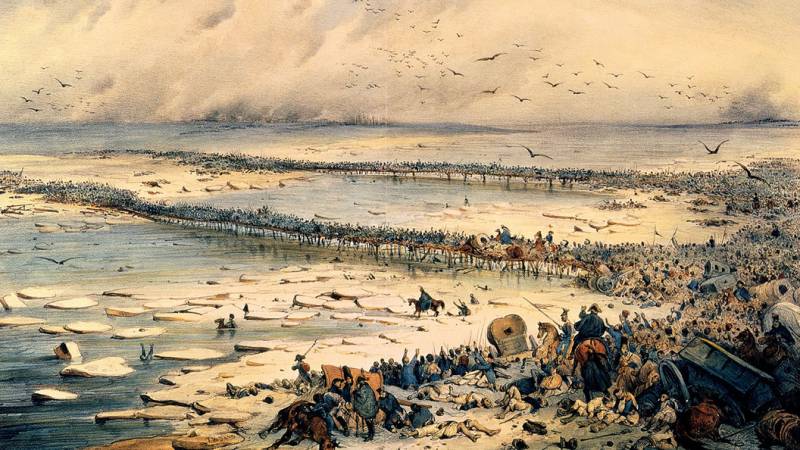
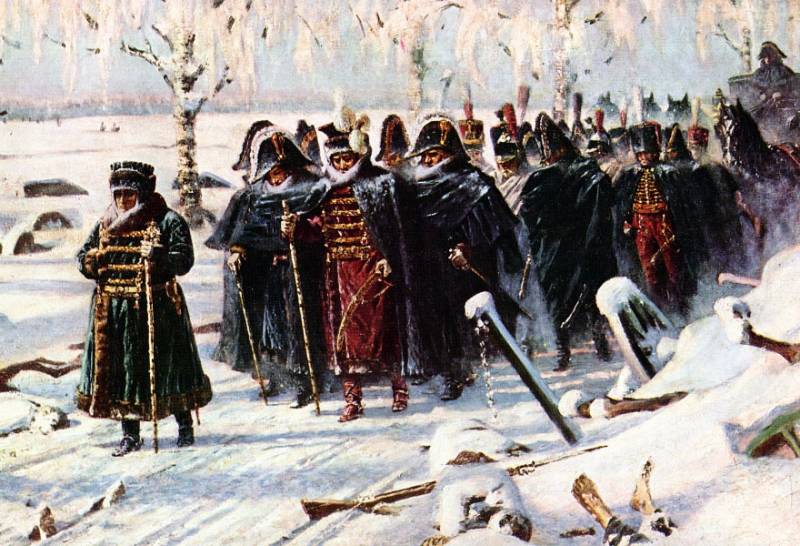
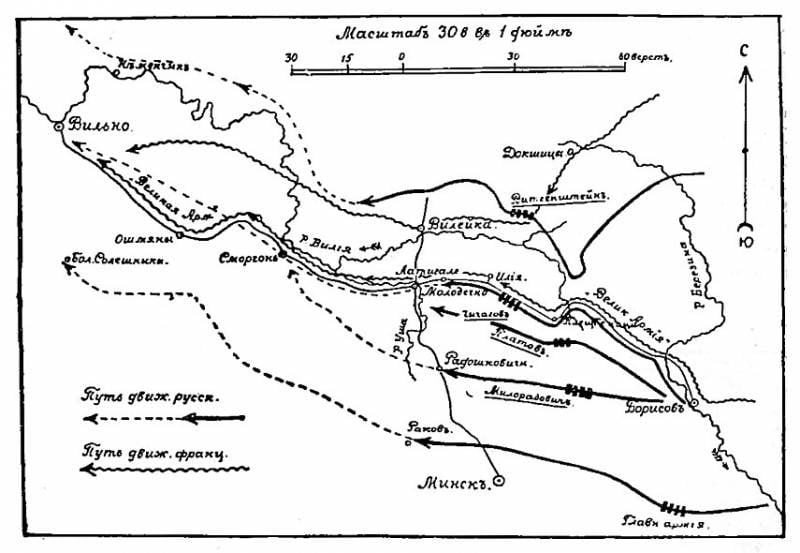
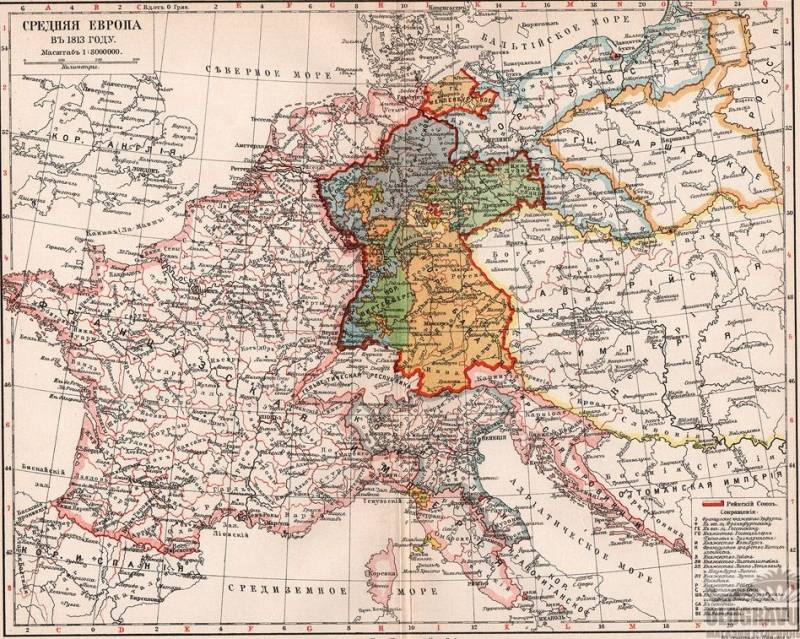
Information